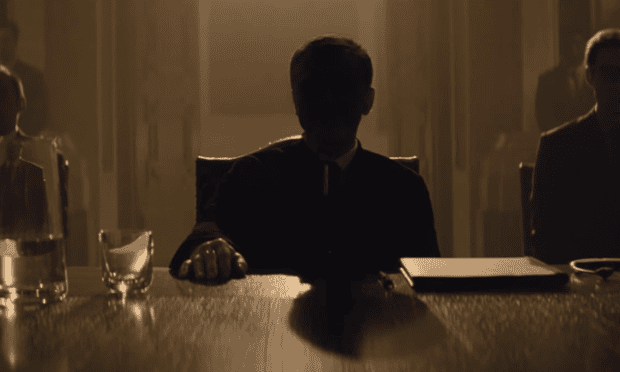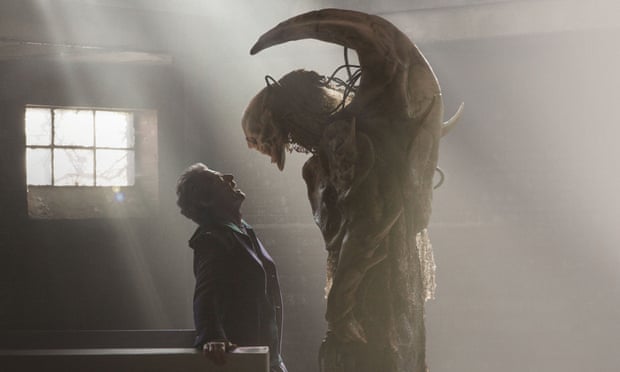"It was me, James. The author of all your pain"- Franz Oberhauser.
Three years ago, we were treated to the biggest James Bond film to date, with Skyfall being a smash with critics and performing incredibly at the box-office. Now, with director Sam Mendes once again at the helm, Spectre is unleashed in cinemas, with all the hype one now expects for a new Bond film. Can it match the thrills and epic scale of Skyfall, and continue to prove why the Bond franchise is so endearing? Long story short, I'd say that Spectre manages to be just as good as Skyfall, with it boasting bigger action and, best of all, an equally threatening villain.
I don't want to give too much away regarding the plot as the film is still in its early stage of release, and hasn't even been released in North America. We open with Bond (Daniel Craig) on a mission in New Mexico, where he is tracking down a terrorist. Of course, this leads to a confrontation between the two, and an exciting chase through the busy streets ensues. We learn that the man Bond was chasing is linked to an organisation known as Spectre, and Bond must discover exactly what they are planning. Meanwhile, M (Ralph Fiennes) has a fight on his hands, as British government agent C (Andrew Scott) plans to close down the 00 initiative. Alongside M's assistant Eve Moneypenny (Naomie Harris) and gadget-meister Q (Ben Whishaw), Bond faces his most testing adversary to date, the mysterious Franz Oberhauser (Christoph Waltz).
Clocking in at two and a half hours, Spectre certainly has plenty of room to work with. Initially, it seemed as if there were two plots going on with no obvious link, with Bond tracking Oberhauser and M battling political forces back in London. As the film progressed, more light was shed as to how the two plotlines link. I felt the development of the two plotlines was handled well, as they were told through the perspective of the heroes, keeping the Spectre organisation and C's aims shrouded in mystery. As is a tradition in these films, Bond travels all over the globe to find out what he can, which leads him to meeting new Bond-girl Madeleine Swann (Léa Seydoux). Swann is at first distrusting of Bond, with her not falling for his charms. Only after they are pursued by Spectre agent Mr. Hinx (Dave Bautista) does she realise that Bond is the best chance she has of staying alive. Madeleine is one of the film's most important aspects, as she is the only one who can help Bond track down Oberhauser. Seydoux puts in a commanding performance, which works well opposite Craig's suave James Bond.
But the film's highlight is undoubtedly the villain, Franz Oberhauser. With plenty of menace and a grudge against Bond, Oberhauser is 007's worst nightmare. Christoph Waltz had big shoes to fill after the fantastic performance of Javier Bardem in Skyfall, but he fits in with the recent cannon of Bond villains with ease. Cold and calculating, there is a great deal of tension whenever he appears, and Waltz was clearly the perfect choice to be given such a role. After Oscar winning performances in Inglorious Basterds and Django Unchained, the appearance of Waltz in Spectre was a big draw for the fans, and was definitely the aspect of the film I was looking forward to seeing most. Giving him a personal connection to Bond was a good creative choice, as I always think villains are always more intriguing and threatening when having a personal conflict with the hero, which is what aslo made Silva in Skyfall so great.
Spectre also boasts incredible action and stunt sequences, which will have you on the edge of your seat. Throughout the film, there are many chases and hand-to-hand combat scenes, all of which are brilliantly choreographed, shot and edited. After many criticisms of the action in 2008's Quantum of Solace, both Skyfall and Spectre have ensured more than satisfying action, and Spectre manages to take things to the next level. More vehicles are involved, new gadgets are introduced, and Mr. Hinx makes for Bond's most physically demanding opponent in the Daniel Craig era. Much of Spectre's publicity has used footage of a chase scene midway through the film, involving cars and a plane racing through the snow-capped mountains. The sequence deserves every bit of praise its receiving, as its one of the best chases probably in the entire history of the James Bond franchise. The sequence just gets bigger as it progresses, with Bond seemingly outmatched by the Spectre agents, leading to a climax that doesn't disappoint.
With just as much hype as Skyfall, Spectre matched my high expectations at almost every turn. My only gripe is that some of the cast are underused. Monica Belluci's character came of as just a plot device rather than a meaningful character, and Eve Moneypenny is only really used in the film's first act. That being said, Spectre really is a fantastic achievement. The pressure was on for the film to deliver, and for me, it delivers in spades. A worthy addition to the Bond franchise, with the benchmark set by Skyfall well and truly risen up a notch. I eagerly anticipate where the ending of the film is leading us, and until then, I'm sure to check out Spectre many more times in the run up to the next instalments release.
Pros:
+ Christoph Waltz as Franz Oberhauser makes for a fantastic villain.
+ Incredible action sequences, in particular the mountain chase.
+ Intriguing plot that links well with the other three Daniel Craig films.
+ Well written and acted Bond-girl makes for a dynamic pairing with Bond.
Cons:
- Underusing Monica Belluci and Naomie Harris (in the second act). However, this is only a minor complaint.
But the film's highlight is undoubtedly the villain, Franz Oberhauser. With plenty of menace and a grudge against Bond, Oberhauser is 007's worst nightmare. Christoph Waltz had big shoes to fill after the fantastic performance of Javier Bardem in Skyfall, but he fits in with the recent cannon of Bond villains with ease. Cold and calculating, there is a great deal of tension whenever he appears, and Waltz was clearly the perfect choice to be given such a role. After Oscar winning performances in Inglorious Basterds and Django Unchained, the appearance of Waltz in Spectre was a big draw for the fans, and was definitely the aspect of the film I was looking forward to seeing most. Giving him a personal connection to Bond was a good creative choice, as I always think villains are always more intriguing and threatening when having a personal conflict with the hero, which is what aslo made Silva in Skyfall so great.
Spectre also boasts incredible action and stunt sequences, which will have you on the edge of your seat. Throughout the film, there are many chases and hand-to-hand combat scenes, all of which are brilliantly choreographed, shot and edited. After many criticisms of the action in 2008's Quantum of Solace, both Skyfall and Spectre have ensured more than satisfying action, and Spectre manages to take things to the next level. More vehicles are involved, new gadgets are introduced, and Mr. Hinx makes for Bond's most physically demanding opponent in the Daniel Craig era. Much of Spectre's publicity has used footage of a chase scene midway through the film, involving cars and a plane racing through the snow-capped mountains. The sequence deserves every bit of praise its receiving, as its one of the best chases probably in the entire history of the James Bond franchise. The sequence just gets bigger as it progresses, with Bond seemingly outmatched by the Spectre agents, leading to a climax that doesn't disappoint.
With just as much hype as Skyfall, Spectre matched my high expectations at almost every turn. My only gripe is that some of the cast are underused. Monica Belluci's character came of as just a plot device rather than a meaningful character, and Eve Moneypenny is only really used in the film's first act. That being said, Spectre really is a fantastic achievement. The pressure was on for the film to deliver, and for me, it delivers in spades. A worthy addition to the Bond franchise, with the benchmark set by Skyfall well and truly risen up a notch. I eagerly anticipate where the ending of the film is leading us, and until then, I'm sure to check out Spectre many more times in the run up to the next instalments release.
Pros:
+ Christoph Waltz as Franz Oberhauser makes for a fantastic villain.
+ Incredible action sequences, in particular the mountain chase.
+ Intriguing plot that links well with the other three Daniel Craig films.
+ Well written and acted Bond-girl makes for a dynamic pairing with Bond.
Cons:
- Underusing Monica Belluci and Naomie Harris (in the second act). However, this is only a minor complaint.


